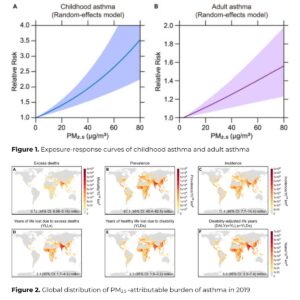A recent study by members of PANTHEON team published in Nature Climate Change provides a comprehensive analysis of carbon dioxide (CO₂) emissions from overseas coal-fired power plants (OCPs), highlighting their significant impact on global carbon emissions. The research reveals that, as of 2022, OCPs have an installed capacity of 127 gigawatts (GW), accounting for 6% of global coal power capacity, and are responsible for emitting 0.53 gigatonnes (Gt) of CO₂ annually, which constitutes 7% of total emissions from global coal plants.
Historical Emissions and Shifting Investment Trends
Since 1960, cumulative CO₂ emissions from OCPs have reached 26 Gt. Developed countries have historically been the primary investors, contributing 78% of these cumulative emissions. However, since 2000, investments from developing countries have increased, with their share of emissions rising from 8% in 1960 to 39% in 2022. This shift underscores the growing role of emerging economies in global coal power investments.
Future Projections and the Need for Policy Interventions
If current policies and technologies remain unchanged, OCPs are projected to contribute an additional 15 to 30 Gt of CO₂ emissions by 2060. Moreover, these projects could indirectly stimulate local coal power growth in emerging economies, potentially adding another 6.3 to 45.0 Gt of CO₂ emissions. These projections highlight the critical importance of implementing low-carbon policy interventions in emerging countries to curb power-sector carbon emissions increasingly influenced by international capital.
Key Takeaways from the Study
- Significant Contribution to Global Emissions: OCPs account for 7% of total emissions from global coal plants, emphasizing their substantial impact on global carbon emissions.
- Shifting Investment Dynamics: There is a notable increase in investments from developing countries, with their share of emissions rising to 39% by 2022.
- Urgent Need for Policy Action: Without intervention, OCPs are projected to significantly increase future CO₂ emissions, particularly in emerging economies.
This research underscores the necessity for international collaboration in promoting green finance and cross-border capital cooperation to effectively curb the growth of overseas coal-fired power plants. Implementing low-carbon policies in emerging economies is crucial to achieving global climate goals and mitigating the impact of international investments on carbon emissions.
Learn More
- Read the original study in Nature Climate Change: Link to the study
- Coverage from SUSTech News: SUSTech article




